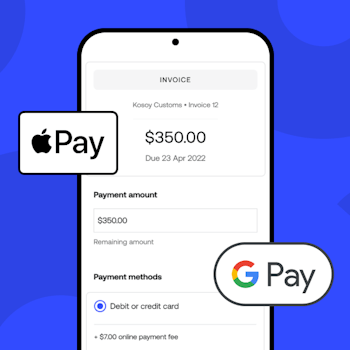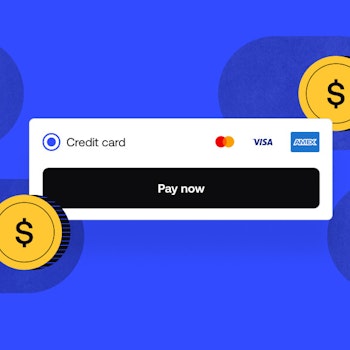
Therapists break down the unique mental health challenges Black entrepreneurs might face – and how to cope
Shanika Valcour-LeDuff bubbled with excitement while launching Labor and Love in 2018. A longtime registered nurse, she started it as a passion project to provide maternal and child services to predominantly Black communities in her hometown of New Orleans. But after her initial excitement, stress took hold.
She had limited access to business resources, for starters. Many funders want to see early-stage businesses generating a certain amount of revenue before investing in them, she explains, making them hard to qualify for. Other than winning a grant from Grow, our $200,000 program to support minority-owned businesses, Shanika self-funds Labor and Love. And while she had maternal and child care mentors, she didn’t know entrepreneurs she could look to for guidance.
Caring for Black mothers and mothers-to-be in a country where Black women are three times as likely as white women to die of pregnancy-related causes, per the CDC, has also taken a toll. In a recent Q&A, Shanika told us about a client in a prenatal appointment whose main worry was dying during childbirth. “I can’t separate myself from the women I’m taking care of because I see myself in all of them,” says Shanika, a mother herself. Restricted access to support staff due to COVID hasn’t helped, nor have the hurricanes that have displaced many of her clients.
As successful as Labor and Love has been in meeting a crucial need in her community, sustaining a business has worn on Shanika's mental health, as it would anyone’s. But personal and systemic racism can create an added layer of anxiety for her and other Black entrepreneurs. The greater hurdles they face to accessing capital and other resources can worsen the stress and self-doubt entrepreneurship often triggers. So can insidious biases about their capabilities.
And having another marginalized identity – as a woman or queer person, for example – can magnify these impacts. Black women may feel pressure to be strong and self-sacrificing, a phenomenon known as strong Black superwoman syndrome, which Shanika says she can relate to.
This National Black Business Month, we spoke to therapists about these and other stressors Black entrepreneurs may need to navigate – and how they can take care of their mental health while also taking care of business.
Steeper barriers to getting started
Many Black entrepreneurs find themselves in a similar bind as Shanika: To secure the funding they need to get their business off the ground, they need to be making more than what the typical Black business has available to them, explains Dr. JaNaé Taylor, a licensed therapist in Virginia and founder of Minding My Black Business, a mental health service for Black entrepreneurs.
Black entrepreneurs already have limited access to capital as it is. Not only does the racial wealth gap make them less likely than their white peers to have a “friends and family” network who can contribute capital, per Fast Company, but banks are less likely to lend to them.
As a result, they often have no choice but to bootstrap their businesses. “It definitely does cause stress,” Shanika says. “I know that there are resources out there, but coming across them and actually qualifying or attaining them has been difficult. Honestly, since the foundation of Labor and Love, I have solely funded everything, working and doing things, until I found [Grow].” Shanika invested her Grow funds into offering her community high-quality services, for free.
Besides the strain that keeping the lights on can have on their relationships and other aspects of their lives, Black entrepreneurs might wrestle with the message implicit in these barriers to capital. “Sometimes there is a connection between worth and the amount of money that you’re bringing in,” says Dr. Taylor, who is Black. “If I don’t feel like my money is being sustained or I’m bringing in the amount of money I should be, then internally, my self-confidence is being impacted.” Black entrepreneurs strapped for capital might even doubt the relevance of their product – and themselves, she adds.
Limited access to capital can also foster a scarcity mentality, which, besides worsening stress, may yield less-than-optimal business decisions, says Stevon Lewis, a licensed therapist in California specializing in impostor syndrome, who is Black. Black entrepreneurs might feel as if “there’s no opportunity to fail, so everything has to be the right decision,” he says.
Let’s say you have $5,000 that you can spend on buying product or advertising. If you have easy access to capital, you might think more long-term and spend the money on advertising to bring in more customers, which will land you more sales. You can use whatever you’ve earned from them to buy more product later. If you mess up, no big deal – your business will survive.
But if you have limited access to capital, like many Black entrepreneurs do, then you might have a scarcity mentality that leads you to believe you won’t encounter an opportunity like this again. The privilege to make a mistake and immediately bounce back “isn’t really afforded to us,” Stevon explains. You might feel compelled to buy more product, nervous that you might not have anything to sell. While focusing on what you need right now can help you survive day-to-day, “that’s counter to what you’re trying to do to help your business grow.”
Since they’re often the first in their families to start businesses, Black entrepreneurs might not have ready access to mentors, either. Indeed, Shanika describes Labor and Love as a “learn as I go type of thing.” But taking the next step without having all the information, though part and parcel of entrepreneurship, can be hard enough for entrepreneurs, Stevon says, because it upends the prevailing belief that success depends on knowledge and experience.
Black entrepreneurs may struggle even more to unlearn this belief. “There is this kind of mantra that we’re taught in Black communities, that you’ve got to work twice as hard to get half as far,” Stevon says – which can lead to pressure to know not just everything, but more than everything.
Stevon encourages Black entrepreneurs to interrogate this adage, especially if they find themselves in spaces that don't support or affirm them. “I think that Black entrepreneurs have to understand that they bring a lot to the table, that they have a lot to offer, and that they aren’t starting off at a deficit just because they are made to feel that way,” he says.
Leaning on your village
Black entrepreneurs used to doing it all with little to no support may resist accepting help when they need it, Dr. Taylor says, which can also heighten stress. “It could feel completely uncomfortable to take a step back and allow somebody to care for what, for most of us, feels like our baby.” Shanika has experienced this very discomfort, applying the same metaphor to her business. “It’s very hard because this is my baby,” she says. “Just like I still do with my daughter, I feel like I want to not miss a thing, or I want to make sure things are done a certain way.”
Black entrepreneurs don’t necessarily grow up observing business owners hiring employees as they scale, Dr. Taylor says. As a result, they might not register employees as necessary — until they reach a point when they realize they can’t do it all themselves.
Shanika came to this realization when she noticed a sharp rise in demand for Labor and Love’s services. “There’s only so many births you can do in a certain time frame,” she says. “Phones ring at any given time, and you have to be able to pick and go” – literally. When a client shows signs they might be coming due, Shanika leaves a bag by her door so she can dash out as soon as they call (usually in the wee hours). Recently, five clients were due in a two-week span, while some of her staff was on maternity leave, affirming her decision to build her team.
Like many Black women, Shanika says she feels pressure to be the “strong Black superwoman.” As Dr. Cheryl L. Woods-Giscombe of the University of North Carolina, Chapel Hill wrote, Black women have learned to be strong, stoic, and self-sacrificing to survive, assuming the role of mother, breadwinner, and more during and after legalized slavery “out of economic and social necessity.” While historically seen as a source of pride, a 2020 study in Psychology of Women Quarterly associated internalization of this persona with loneliness, as well as symptoms of anxiety and depression.
“Misogynoir contributes to Black women having to continue to advocate and fight for equity, and frankly, compensation,” Dr. Taylor says. “The challenge to our mental health is connected to exhaustion experienced in ‘fighting this fight,’ along with having few spaces that feel safe to be vulnerable and heal.” As Stevon points out, Black women often need to consider whether showing their frustration or speaking up risks them getting labeled as the “angry Black woman.”
Amid incidents of police brutality and other crises that disproportionately impact Black Americans, Black entrepreneurs might feel obligated as community leaders to be pillars of guidance and support – when they need that for themselves first, Dr. Taylor says. In a similar vein, those whose businesses directly serve their communities, like Shanika’s, may need to cope with the day-to-day stress of seeing people they recognize, or aren’t too distant from, undergoing hardship, according to Stevon. “It’s hard not to take some of that on,” he says.
Shanika owes her desire to “be everywhere for every client,” to her ability to identify with them. Even while working at a hospital, “it didn’t matter to me the race or the socioeconomic status of the patient I was taking care of. I always saw myself in that bed,” she says. “I personalize it all, which I think is probably why I try so hard to be everywhere, you know?”
But she’s learning to practice what she preaches to her clients. While she understands their eagerness to care for their babies on their own, she encourages them to rest so they can give their best to their babies, and themselves.
Heeding her own advice, Shanika relies on her supportive spouse and family members to help care for her daughter when Labor & Love calls her elsewhere. And when a higher client load forced her to lean on her staff, she was happy to discover that everything turned out fine – better than fine, even. “I’m actually very impressed with the work that my team does,” she says. “It makes me feel good that I can have my baby in someone else’s care, and things are going to still be great.”
Taking care of mental health while taking care of business
Due to a history of medical racism that persists to this day, “mental health” has been something of a trigger phase in the Black community, rightfully invoking fear and mistrust, Stevon says. But he’s noticed a growing openness among Black Americans to improving their mental health in recent years, thanks largely to younger generations normalizing conversations about it. Therapists’ social media presences have helped, too, Dr. Taylor says.
All of this is to say that if you’re a Black entrepreneur, you don’t need to carry the emotional burden of your journey alone. Shanika and the therapists we interviewed offered actionable insights on how you can care for your mental health while growing your business.
See your identity and experiences as assets
As a Black entrepreneur, you might find yourself in predominantly white spaces. If you’re the lone Black person in the room, consider that there’s something wrong with the room, not with you, Stevon says. See yourself not as a recipient of VIP access to the room, but as necessary to the room – “not like you were gifted with something, but that you are the gift.” Your perspective and experiences might allow you to better spot unmet needs, for example, Dr. Taylor says.
Remember: You don’t need to know everything
Maybe you don’t need to know as much as you think you do to make the next move. Shift your perspective to include “not knowing” as part of entrepreneurship, Stevon says, and remember that your success has more to do with your adaptability. Besides, “there’s no way for you to be able to predict everything that you will have to encounter or navigate in the future,” he says.
Stop waiting for downtime
If business is doing well, customers will want more of your products or services – so if you’ve put off updating your website or rebranding until things slow down, “let go of that because you will frustrate yourself,” Stevon says. “That time may never come. You’ve got to figure out how to continue doing or growing or evolving while stuff is chaotic.”
Seek therapy, if you have the means and if you’re ready
“I’m not saying everybody needs to go into therapy, although if you have the ability, just try it out,” Dr. Taylor says. Identify what you want to work on; whether you want a therapist of a certain race, gender, or other aspect of identity; and if you want to work with them short- or long-term. Stevon points to resources catered to Black Americans and other people of color in search of therapists, like Therapy for Black Girls and Ayana Therapy.
Prepare questions to ask the therapists you’re considering, such as whether they’ve worked with clients experiencing similar issues as you, Dr. Taylor says. And if you feel like you and the therapist you’ve landed on just don’t vibe, it’s best to end the relationship sooner rather than later. Dr. Taylor personally appreciates when clients let her know they’re not clicking, which allows her to refer them to other therapists who might be able to help.
Shanika has seen plenty of benefits from therapy, calling her therapist “amazing.” And the benefits of improved mental health can trickle into your business. “I think if we feel healthy, then we have healthy businesses,” Dr. Taylor says.
That said, Stevon, like Dr. Taylor, doesn’t believe therapy is necessary for everyone, and cautions against seeing those who haven’t done it as “failures.” If you don’t feel emotionally or financially ready for therapy, you can still connect with a mental health professional through a self-help book or workbook they’ve written, or a podcast they’ve produced, Dr. Taylor says.
Find your people
“Oftentimes Black entrepreneurs who have small businesses can feel really invisible, and social media sometimes can make you feel even more invisible if you don’t have a big audience,” Dr. Taylor says. “That’s why having in-real-time connections – people you can email, call up, text – is going to be so beneficial to you.” They can give you a reality check whenever you get too fixated on what’s not going well. If nothing else, Dr. Taylor suggests at least finding an accountability partner – someone with an intimate knowledge of what you’re trying to achieve, who you feel safe opening up to, and who can support you. Ideally, you’d check those boxes for them, too.
Refill your own cup first
As someone in a leadership role, you might understandably feel compelled to check in with those who rely on you first, especially when a crisis hits your community. “But if you’re not in a good spot, maybe we should switch that order,” Dr. Taylor says. Shanika agrees. “Self-care is very, very important for everyone,” she says. “You can’t pour from an empty cup, and so you have to make sure you are refilling yourself before you try to give to other people.”
And as she reminds herself, it’s ok to let your team care for your (business) baby now and then. “You have to learn to trust your village,” she says.
Related Articles

How to accept credit card payments on Invoice2go in 3 simple steps

Accept payments online via Apple Pay and Google Pay

Must-not-miss write-offs as you wrap up 2022 year-end finances

5 ways accepting credit and debit card payments helps your business stay resilient

4 easy ways to increase cash flow today

What is Small Business Saturday and why is it important?
The features and surprising benefits of a well-designed packing slip
